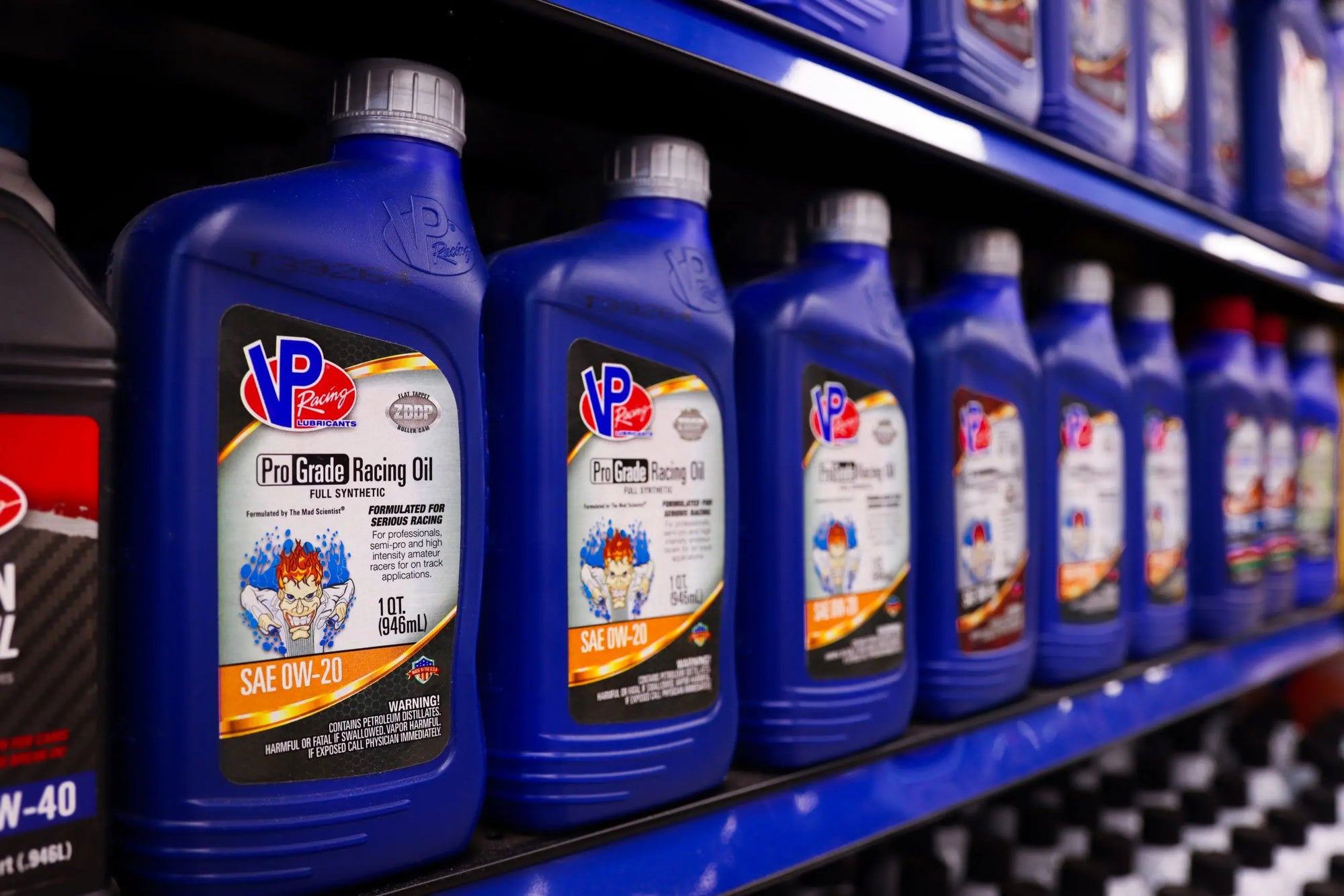High-Performance Oil Helps Unlock Horsepower
Trends in Engine Design
Estimated reading time 5:00
There are a couple of significant trends we need to discuss related to high-performance engine oil, demands on engine lubrication, the search for more power, and the role of high-performance lubricants: the shift to steel pistons and turbocharging.
To begin with, the shift to steel pistons improves fuel economy because steel pistons allow higher combustion pressures to be applied, which improves performance.
On the other hand, steel pistons make the oil and cooling water run hotter, potentially increasing deposit formation in piston ring grooves. Therefore, it’s critical to protect engine parts with antioxidant additives.
Furthermore, turbochargers play a key role in modern engine technology because they create higher engine performance. As a result, it allows engines to be downsized while boosting output. While turbochargers reduce exhaust emissions, they’re also susceptible to deposits.
Friction, Fuel Mileage, and Horsepower
Whether it’s a regular or high-performance oil, many consumers ignore the engine oil that local quick lube shops put in their vehicles, but they shouldn’t. For one thing, the base oil and additive composition can significantly impact turbocharger and piston deposits.
For instance, light base oil components with lower boiling points could be transformed into the vapor phase in the engine, causing turbocharger, piston, or oil mist separator deposits.
You lose engine efficiency due to friction in engine components, and the most significant amount of friction happens between the piston ring and the cylinder liner. When you reduce this steel-on-steel friction, you lower operating temperatures. You also improve fuel economy and increase torque and horsepower within the engine.
Now that we’ve covered trends in engine design and how friction affects fuel economy and horsepower, we can address high-performance oil and its impact on high-performance engines.

Understanding High-Performance Engine Oil Design for High-Performance Engines
It’s essential to understand how lubricating oils are stressed. We can look at the racing industry for some valuable insights. They blend the best high-performance engine oils used in open-wheel, dragster, and road racing cars to withstand multiple demands, including lateral G loads, high compression, and dry-sump systems.
In dragsters, the extreme internal forces flatten the crankshaft bearings and destroy valve springs during a pass. As a result, race teams have to rebuild the engine after every pass. Oil can lose its ability to lubricate, protect, and cool because of foaming and a lack of physical separation of metal parts.
For racing applications, they manufacture high-performance oil with additives to combat this, such as zinc dialkyl dithiophosphate (ZDDP, or zinc and phosphorous), moly, boron, and other anti-wear additives. Heat and pressure often help activate the anti-wear additives, creating a sacrificial film that protects engine parts.
They also use anti-foam and ZDTP additives, and friction modifiers in high-performance engine oil to unlock hidden torque and horsepower gains for racing. These additives also improve the working ability of high-performance lubricants.
As racers and performance enthusiasts search for affordable power, they often turn to bolt-on mechanical systems and overlook fluid. VP Racing Fuels has nearly 50 years of formulation expertise. VP believes that fluids (fuels, coolants, & high-performance lubricants) are critical performance parts that can unlock power gains if applied correctly.

Vp’s Unique Approach to High-Performance Lubricants
VP has analyzed various approaches to developing the best high-performance engine oil for racing. It’s resulted in three design paths aimed at maximizing lubricant performance:
To begin with, we use select base oils with polar characteristics that improve the oil’s ability to cling to metal components by improving viscosity.
Next, we include a balance of multiple anti-wear chemistries beyond ZDDP in the oil that adhere to metal surfaces and create a protective layer. Finally, we add unique friction modifiers that reduce fluid-to-fluid and surface friction between the oil and moving metal components, which unlocks horsepower and torque.
VP Oils Put To the Test
Lubricant design is a science. VP uses a 3-pronged approach to develop superior engine oils. The result is remarkably stable oils that allow race and high-performance engines to achieve extraordinary performance and durability.
In fact, multiple engine builders, including Al Moody Race Engines, have performed dyno tests of VP’s engine oils. Their trials have revealed real gains in horsepower.
Many of these same engine builders have also performed documented video teardowns. They’ve inspected wear on engines ranging from 355 cubic inch dirt track motors to 3,000hp big block marine engines. Upon inspection, the engine and its internals look virtually new, and you can reuse them beyond traditional replacement intervals.
VP Premium Engine Oil & Lubricant Line
VP lubricants are available in conventional, synthetic blend, and full-synthetic versions.
VP also offers a range of Hi-Performance full synthetic and conventional gear oils to maximize the performance of drivetrain components, including SAE 75W-90LS and 75W-140LS full synthetic and SAE 80W-90LS and SAE 80W-140LS conventional. VP also designs a GL-4 SAE 80W-90 gear oil to protect sensitive brass and other metals found in classic/vintage manual transmissions and gear sets.
Whether you are driving a turbocharged commuter, street muscle car, or a weekend drag car, your current high-performance engine oil may not deliver the protection or power you think. In fact, it may cost you money in the long term.
Enjoy maximum power, performance, and protection.
Turn to VP for the best high-performance and racing oils for your application.

